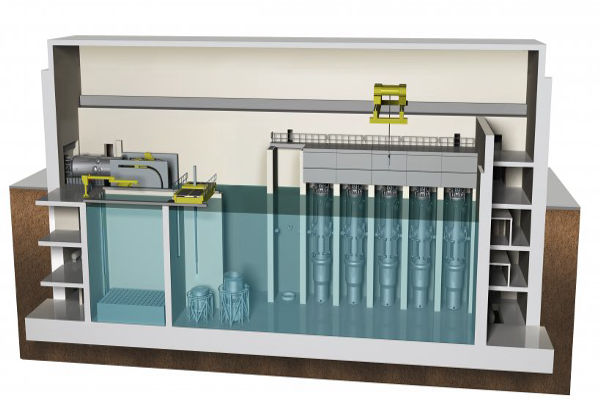First Hydrogen Corp. (“FIRST HYDROGEN” or the “Company“) is pleased to announce a strategic collaboration with Professor Muhammad Taha Manzoor from the University of Alberta aimed at advancing Small Modular Nuclear Reactor (SMR) technology, specifically focusing on fuel reactor materials and reactor design optimization taking into consideration the growth of artificial intelligence (AI) data centres as they consume up 10 times more power than normal data centres (Ithy – Comparative Power Consumption of AI Servers and Normal Servers in Data Centers). The project will take into consideration the surge in AI data centres and energy needs worldwide. The project will be led by Dr. Manzoor, an expert in molten salt thermal-hydraulics and lead at the Renewable Thermal Laboratory that has projects ranging from thermal energy storage to small modular nuclear reactors.
Molten salt, as a coolant and nuclear fuel, is the future of nuclear energy due its:
| Safety | – | if the salt overheats, it naturally expands and makes the fission reaction less effective which will shut down the reactor. |
| Efficiency | – | molten salt reactor cores can change its power level to match heat removal for electricity production. |
| Flexibility | – | can be used with uranium, plutonium and thorium |
| Source: Idaho National Laboratory https://inl.gov/how-molten-salt-could-be-the-lifeblood-of-tomorrows-nuclear-energy/ | ||
This collaboration aligns with First Hydrogen’s mission to pioneer sustainable, efficient, and safe energy solutions, leveraging nuclear technology to produce green hydrogen and support global decarbonization objectives. First Hydrogen seeks to integrate advanced nuclear technology with green hydrogen production. SMRs, known for their compact design, scalability, and ability to provide a continuous, weather-independent power supply, are the cornerstone of this initiative. By leveraging SMRs, First Hydrogen ensures a stable, cost-effective, and efficient process for producing green hydrogen, addressing the growing demand for clean energy solutions worldwide.
The International Energy Agency reported artificial intelligence from data centres will drive electricity demand. By 2030, electricity demand from data centres worldwide is expected to more than double to 945 terawatt hours, more than the entire electricity consumption of Japan today.
According to McKinsey and Company, the AI book is driving significant investment in data centres. Their research indications that approximately $5.2 trillion, in capital expenditures, will be required worldwide by 2030 to meet the increasing demand for computing power.
Dr. Manzoor commented, “We are excited to collaborate with First Hydrogen on molten salt small modular nuclear reactor research. The signing of this letter of support marks an important first step in what promises to be a series of significant milestones in advancing SMR technology in Canada. This industry-led project will provide students with valuable hands-on experience and help train the next generation of engineers and scientists who will contribute to the growth and diversification of Canada’s energy sector.”
Balraj Mann, CEO of First Hydrogen, stated, “We are excited to collaborate with the University of Alberta, leveraging their expertise in nuclear research to significantly advance nuclear fuels for SMRs. This collaboration underscores our commitment to driving innovation in clean energy solutions that will play a critical role in transitioning toward a zero-emission future.”













